
Program Coordinator, Black Infant Health
– Sabrina
I came out here to Fresno in the fall of 2001 for college. Considering that I grew up in Bakersfield, they are both very similar communities in the sense that they’re conservative. Bakersfield is probably a little more conservative than Fresno. There’s more diversity — not necessarily in race and ethnicity — but in thinking out here. I came to Fresno because of the marching band at Fresno State. I’m a music fanatic. But what keeps me here is the relationships that I’ve built with people in the community. Fresno, oftentimes, gets a bad rap. Some might call it a “crabs in a barrel” type mentality, but it is not. Here, it takes a little bit more digging and a little bit more research. Once you find someone that is well installed in the community, you flourish.
I’ve been blessed enough for that to happen. There’s some good-hearted and good-natured people here, all very down to Earth, wholesome people. I like smaller communities like mine in Fresno, because of the intimacy of those you get to develop relationships with. I like the fact that when I go places, people have heard of me, or know of me.
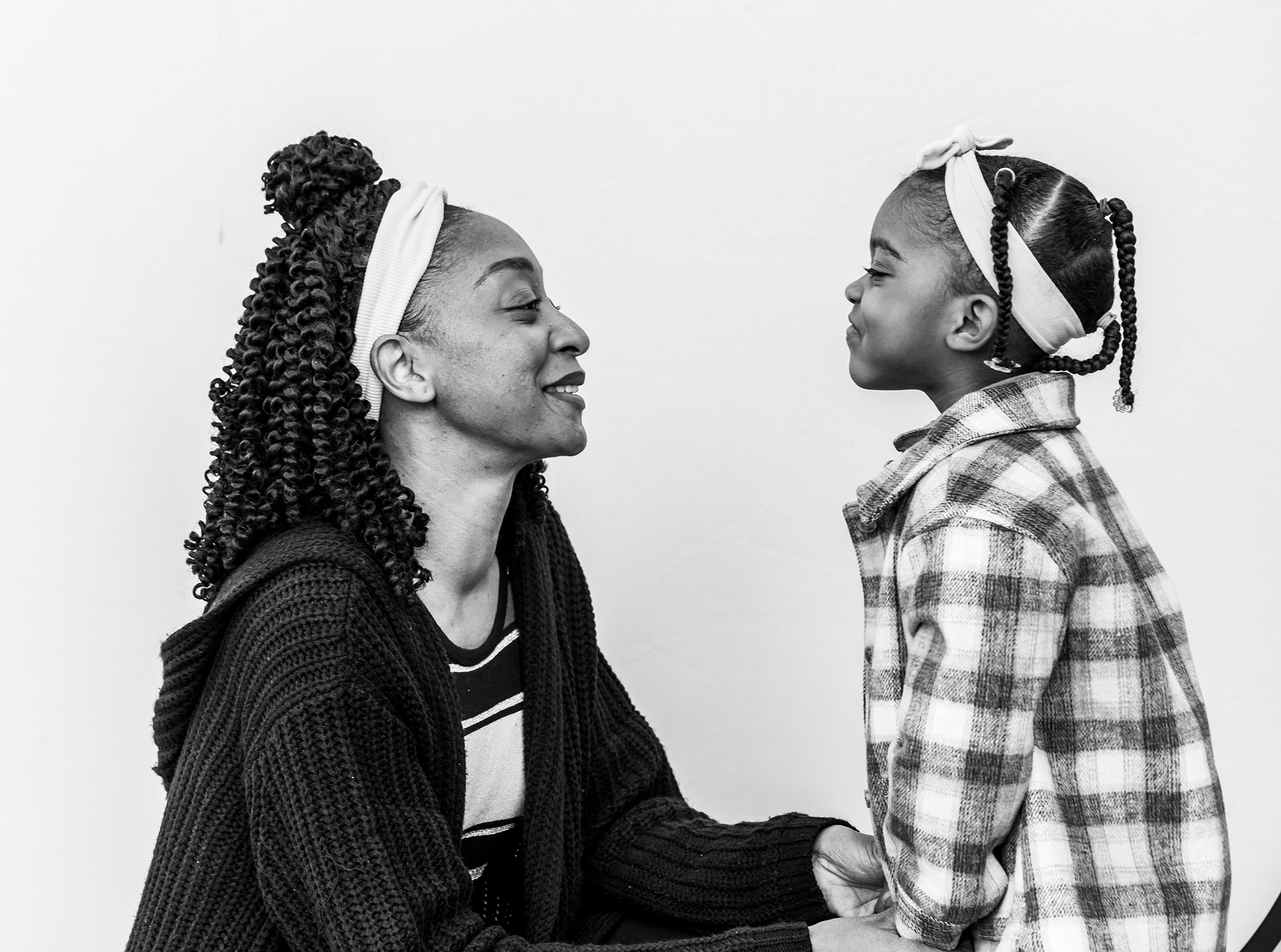
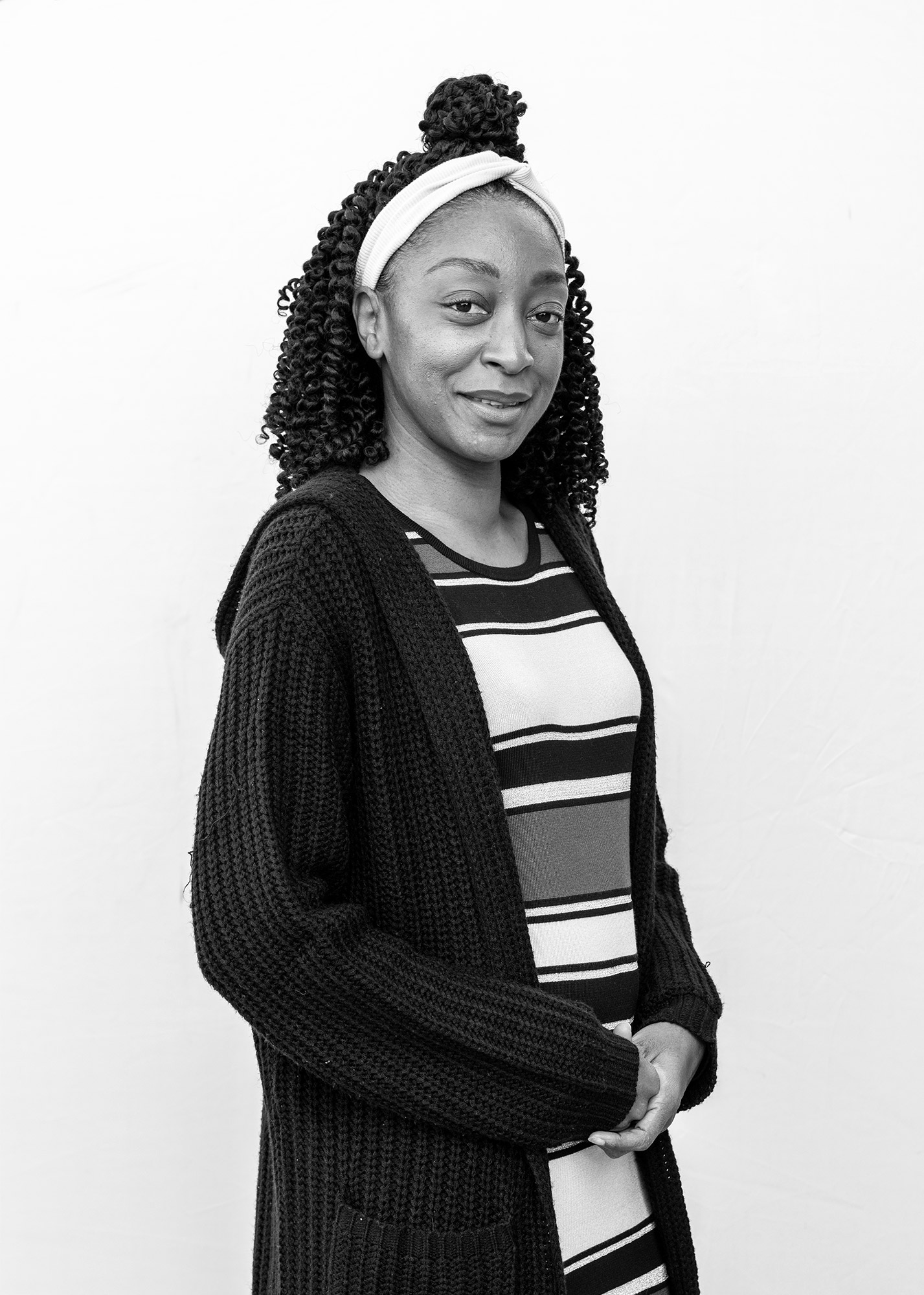
I started working for the Fresno County Department of Public Health in March 2012 as part of the Nutrition Education and Obesity Prevention (NEOP) program, which is funded by CalFresh. Later that year, I met the Black Infant Health coordinator at the time, who was also the public health nurse. Her name was Erica Alexander and she was a very dynamic individual. She approached us because she wanted to partner and have one of us come out to their nutrition sessions, in both the prenatal and postpartum group. I would go and talk to the women about the importance of nutrition, model healthy eating, and explain how the food you eat affects the baby during pregnancy and breastmilk during postpartum.
The women were always excited when I participated. From there, it had expanded to me doing food demos during their African-American baby showers that they did in collaboration with CalViva Health, which is one of our Medi-Cal managed insurance plans out here as well as the Special Supplemental Nutrition Program for Women, Infants, and Children (WIC).
I mentioned to Erica that I wanted to try something different. She said, “Well, we’re supposed to be hiring soon because we are getting ready to expand the program.” I was like, “Great! Keep me in mind.” In the new fiscal year, she reached out to me and asked, “Are you ready?” I was transferred to Black Infant Health in August 2015 and started out as the dedicated outreach person. Through that, I’ve gained connections and built community because I was tasked with trying to build relationships in order to increase our referrals as well as trying to find ways that we could collaborate for events. I hit the ground running.
That’s actually how I met Kendalyn Mack-Franklin. The members of her sorority still continue to have me come out to Fresno State during Infant Mortality Awareness Month and Preterm Birth Awareness Month to table and talk to the sisters.
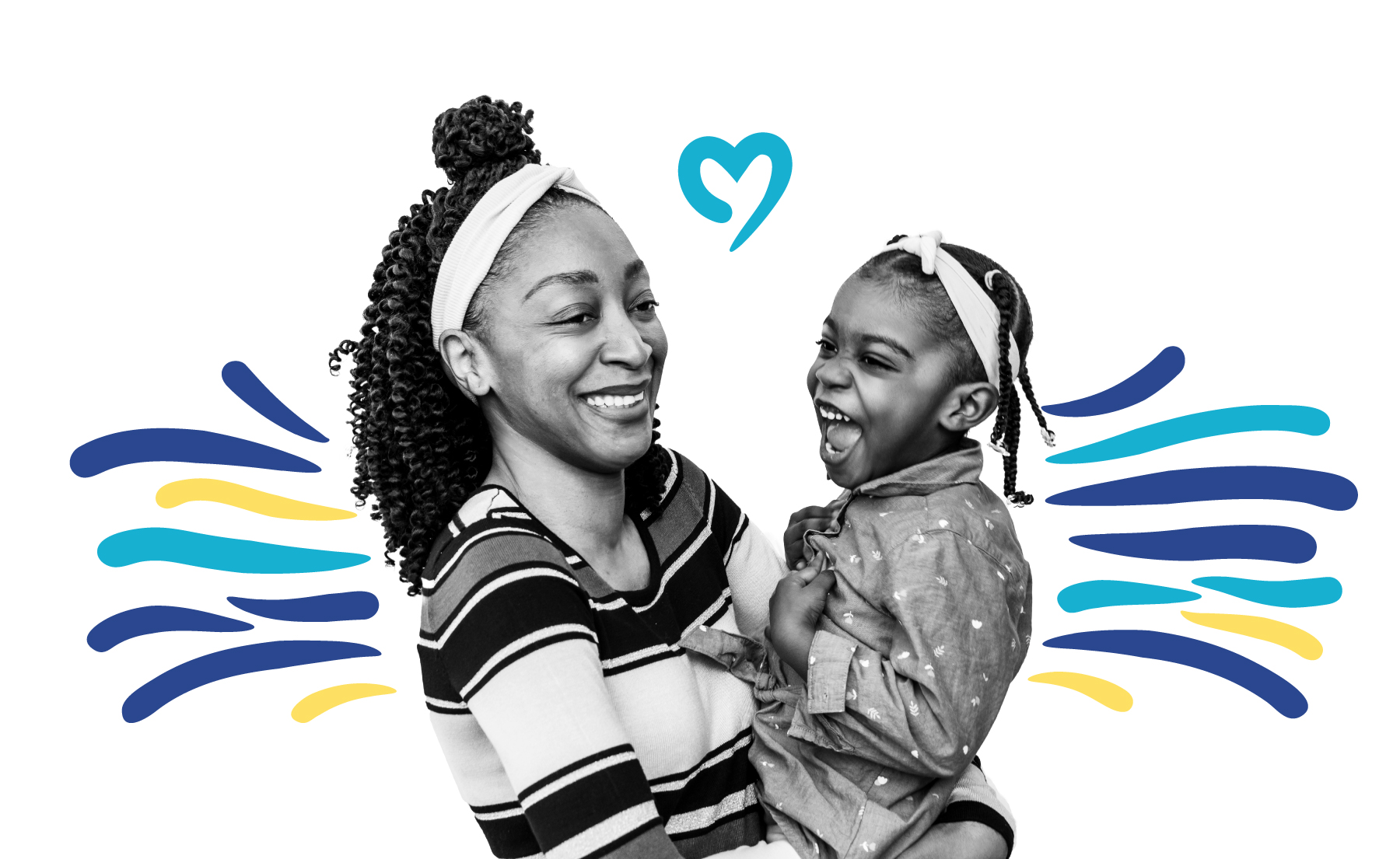
Of course, you have these thoughts and ideas of how you want your pregnancy to go. That dream and fantasy of being with a supportive partner, whether married or otherwise, who was just as excited as I was about having a child and community, family, friends, and others supporting and just loving on us during that experience.
My initial goal was not to have a child in Fresno. I was wanting to have a well-thought-out plan but I am part of the statistic that did not have a planned pregnancy. A majority of our pregnancies are not planned. Even if you try to plan them, they don’t ever go as planned.
I am thankful and grateful for the fact that I was working for Black Infant Health when I did ultimately conceive and decided to maintain my pregnancy. I had a wealth of knowledge that helped to support me during that process and a wealth of support from my community during my pregnancy, birth, and postpartum period.
I had always known I wanted a doula. I wanted to have a midwife and deliver at home. I wasn’t too keen on delivering in a medical facility, just because I knew the experiences that the women we serve had. Obviously, that didn’t happen because my pregnancy wasn’t planned. Even working as a public health professional, I couldn’t afford to hire a midwife or prepare to have a home birth. Although I did have top-rate insurance through my employer. But even with that, I didn’t necessarily get the birth that I ultimately was dreaming of.
In 2018, I was dating my child’s father and it seemed to be as if we were working towards becoming exclusive. It took me a while to tell him that I was pregnant, because I really liked him, and this could probably make or break our relationship.
He was less than pleased and excited. He actually wanted me to terminate and that wasn’t something I could do. He did stay in touch and stay involved, but he shut down on me, so I was torn. Because this is the first time I’ve ever been pregnant, and I’m kind of excited but scared to do this. There’s still that black cloud of “Why weren’t you here just during the pregnancy portion of it?”. Even if you couldn’t continue moving towards a committed relationship or anything, you could have at least just been there as a friend.
I knew I had a buttload of support from my peers at Black Infant Health and everyone else out in the community that I’ve worked with. My family was excited, but the one person I wanted to be there was him. Because ultimately you want to be able to have your child’s father be there and be supportive of you while you’re getting ready to have your child. So my pregnancy was riddled with stress.
Two days prior to me actually delivering, I had my thirty-five-week appointment with my doctor, and I had explained to them that my mucus plug came out. I knew that was normal because usually between thirty-four and thirty-six weeks, they tell you that there’s a possibility it can come out. But that it could take some time before you go into labor.
Well, it didn’t take any time, because two days later, my water broke at work. On my last day before going on leave of course! I had to deliver five weeks preterm. She spent ten days in the NICU, which obviously scared me to death as a first-time mom. Being in the NICU with her was foreign to me. Not necessarily knowing how to advocate on behalf of myself and my child, but at the same time just trying to go with the flow of things and learning at the same time. It was a challenge. Plus, that’s not how I expected to give birth.
There were a lot of things I had to heal from. Not only physically, but the mental trauma and emotional trauma of everything.
When I talk to providers in Fresno, I emphasize the importance of referring Black women to Black Infant Health. When their patients participate, they become better patients, because women in our program are able to see the importance of keeping their prenatal appointments. They have the ability to advocate for themselves. They’re more knowledgeable. They’re more consistent. They have a better outlook regarding their pregnancy and upcoming birth.
In most cases, providers are on board. We do have some providers that weren’t as receptive at first, and it just took time to build relationships with them. We need each other to collaborate and because of my persistence and community orientation, our work has helped increase awareness about the Black Infant Health program, at least within our obstetrician community. Obviously more still needs to be done.
When I became a case manager two years ago, I got the opportunity to interact with the women in our program through the course of their pregnancy and beyond. Prior, I was their first contact but I wouldn’t know what happened to them once they were assigned to a case manager unless I saw them while facilitating one of the group meetings.
It was as a case manager that I experienced infant mortality. Not personally. I have had a few of cases, including Shatanya Nunn, where I had to support someone who went through a loss. In Shatanya’s case, I was there every step of the way. It was very difficult for her but also very difficult for me. I still get emotional about it.
When Lavon was born prematurely, Shatanya reached out to me because she knew I had NICU experience. He was only at home for a short time before being checked into UCSF. While Shatanya went back and forth, I connected her to the Black Infant Health program in San Francisco so they could provide her support. She was feeling homesick, tired, and didn’t know anyone out there. They got her gift cards for food and sent her care packages to make the hospital feel more like home. That speaks to BIH’s connection across the state — if any of my clients were in another county, I can call that sister program and know that my client will receive an extension of support. There are 15 counties in California with Black Infant Health programs.
The day that they were planning to take him off life support, I even met her at the hospital. It didn’t happen that day because her husband wasn’t ready. Fate ended up making that decision for them a few days later. I still keep in contact with Shatanya and check in on her.
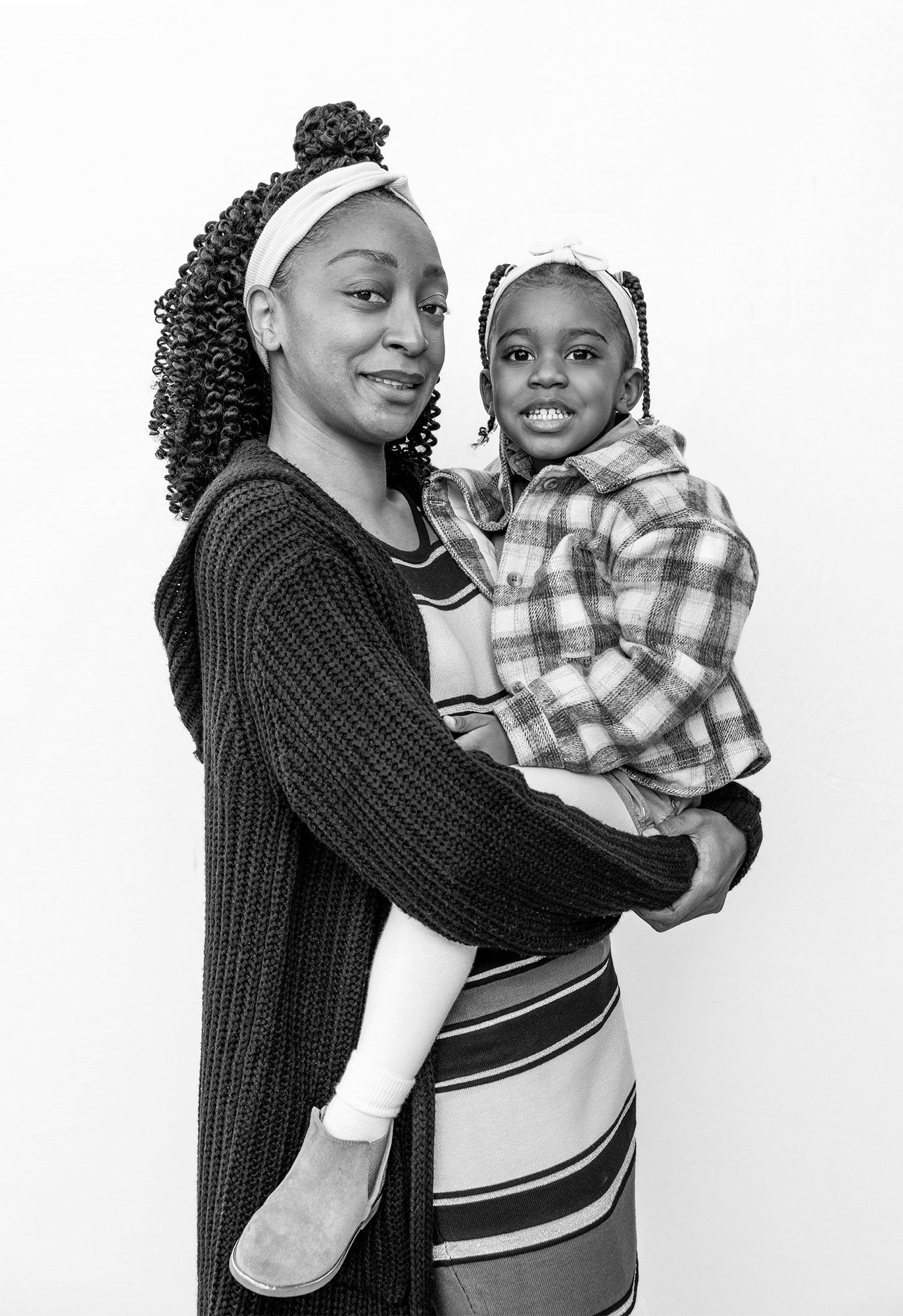
It was my first time as a case manager experiencing this. When she called I could hear the grief, it was hard. We’ve lost babies before: There are some that were lost to SIDS. We had a client who had twins and one of the twins didn’t wake up. We’ve had women have deliver early and the baby is in the NICU, and then they get the call that the baby isn’t breathing and there’s no heartbeat. We’ve supported women through stillbirths and a good number of miscarriages. As a program, we have had those losses.
It’s hard. It really is. It doesn’t get any easier with days that pass. But considering that I was just a case manager and even though this wasn’t my baby that I lost, I still felt like I had lost a baby alone. In the fact, I remember and honor this child’s birthday every year. So their loss is our loss.
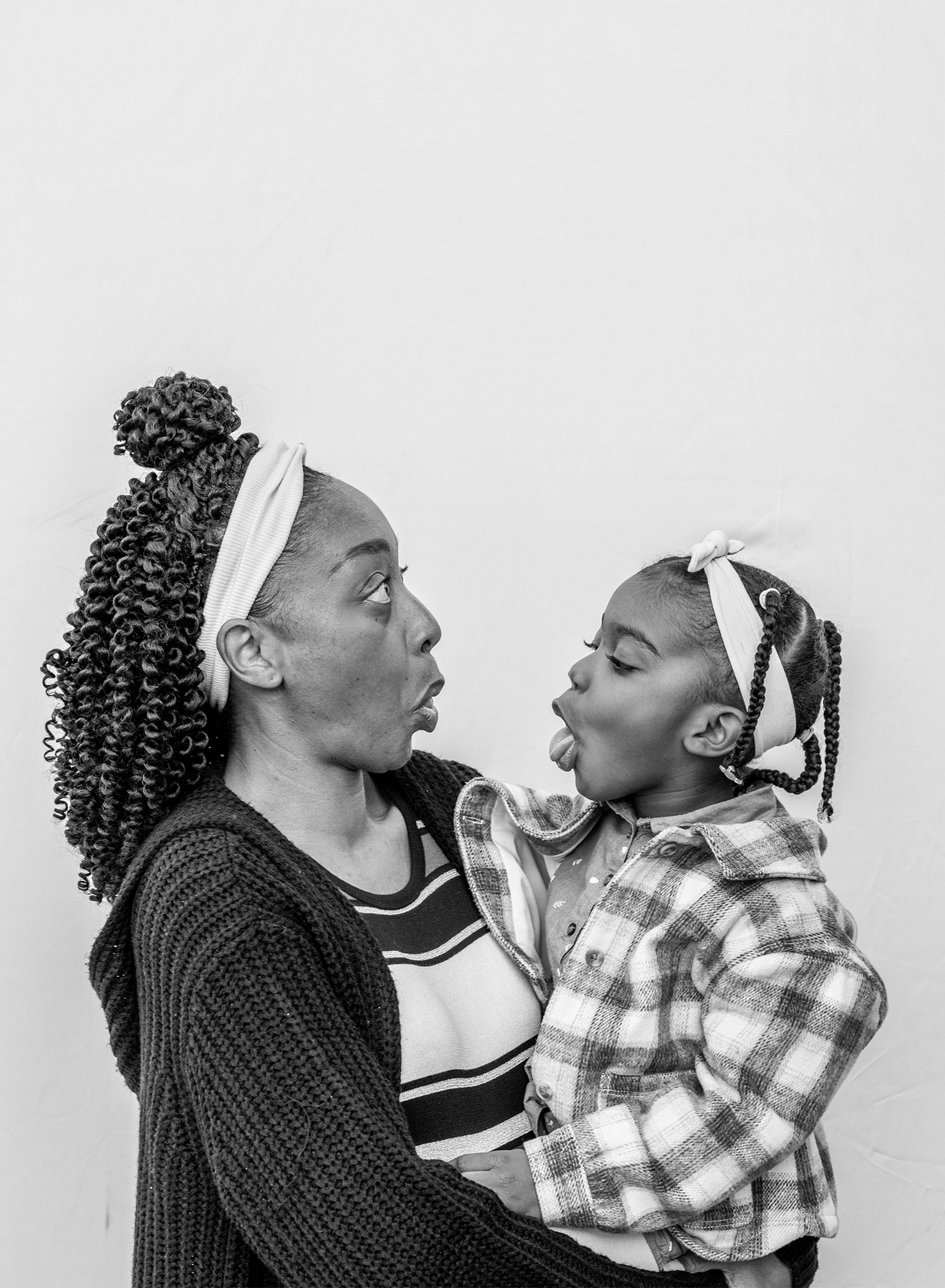
We know that across the board in this nation, in this world that infant mortality and preterm birth are things that don’t have to happen. I want the Fresno community to know that in most cases infant mortality is preventable, and that all it would take in most cases is changing systems and changing the ways in which they see pregnant women. Which is just a change in how you treat a human being.
We’re not just talking about the medical community. We’re talking about any system that they tap into. From their employer to communities. We’ve had women whose employers, for some reason, just conveniently forget that they’re pregnant and not make exceptions. What kind of thinking is that? Or, she’s going to her medical provider and telling them certain things that she’s concerned with, and they’re like, “Oh, that’s no big deal.” What do you mean that’s not a big deal?
It’s not something that is imaginary. It’s not something that is a figment of our imagination. These are real-life experiences of women not being seen, not being heard, and being dismissed.
Being a professional who works for the Black Infant Health program, I’ve done an immense amount of presentations to give statistics and provide the history and context of why things are the way they are. And I still get questions like “Well, why is it just for Black women?” I just told you why! You mean after all this, you still don’t understand?
It is 2022 and we are still having these conversations to defend why there is a program like such as this. Most programs exist to address a need, address a problem. There’s a reason behind it, and that reason is our Black community is disproportionately losing their children, and that should be concerning, not only to Black people, that should be concerning to everyone in our community, because if at the bare minimum a baby can’t enter into this world healthy, what does that say about the health of the rest of the community?
The Black Infant Health program has been around for 34 years. It is as old as some of our older millennials. I still get people who tell me they’ve never heard of it. We’re as far north as San Francisco and as far south as San Diego. You have the nation looking at this program as a model for something that they can implement in their state, and all we do is what is obvious. We listen. We provide support. We provide resources. And we provide a safe space for these women to be seen, heard, and understood.
It’s that simple to at least try to make somewhat of a dent in increasing positive birthing experiences. Positive pregnancy experiences. Positive labor and delivery experiences. Positive NICU experiences. Positive postpartum recovery experiences. Yes, of course, there’s research behind it. A program such as this recognizes that these women just need a safe space to be able to connect with other women, for them not to be judged, not to be dismissed, and to be understood culturally, it’s so simple. It’s not rocket science.
If you care anything about the Black members of your community, you should be running them to resources like this, through our doors. Especially the medical community, they have a chance to change the dynamics. It doesn’t cost them anything — if anything, it costs them time.
I want Black women not to have to fight. I want to be worked out of a job. I know it will become a reality. One day, maybe during my lifetime, hopefully. But I’m hoping that it definitely happens before my child decides to have a child of her own.